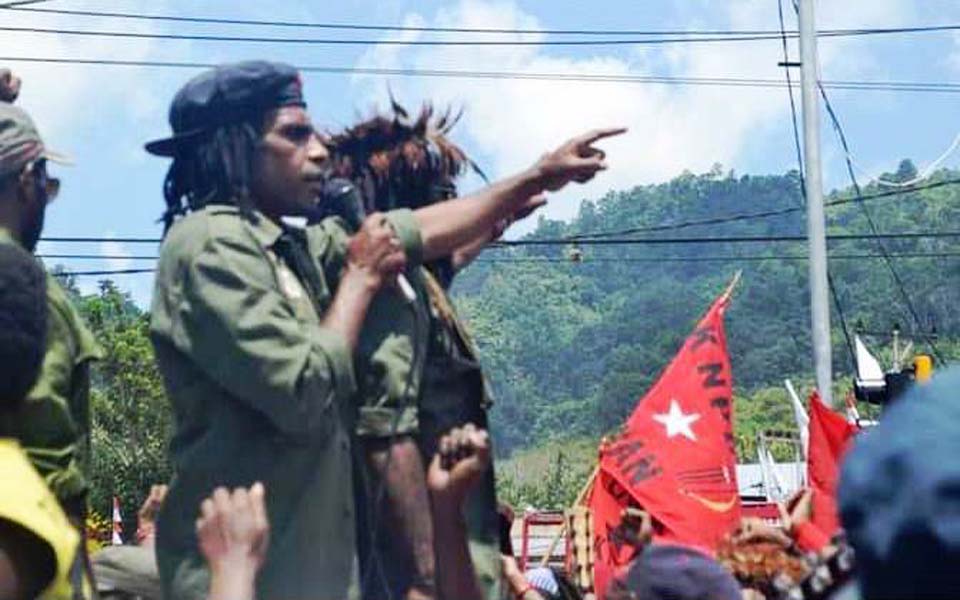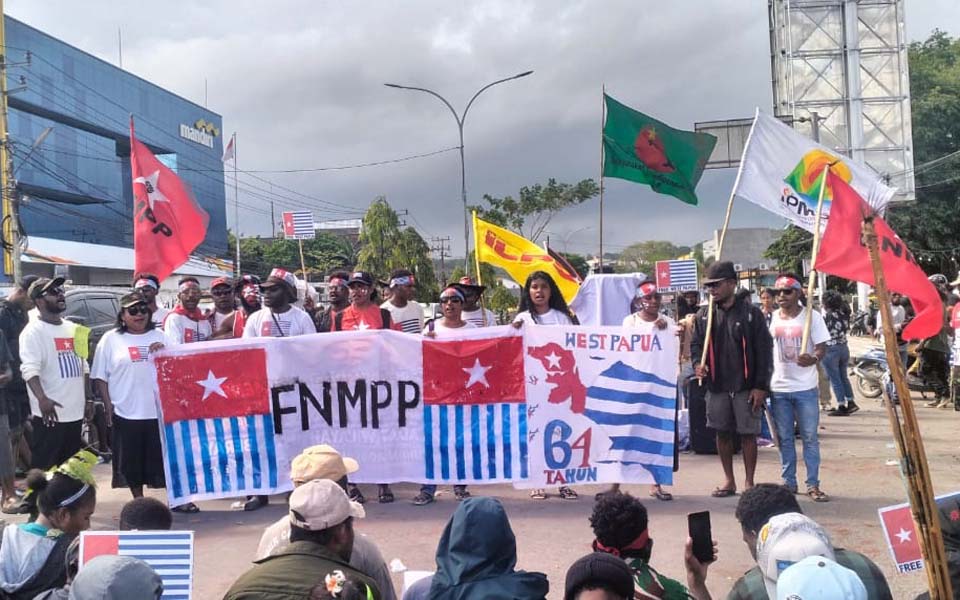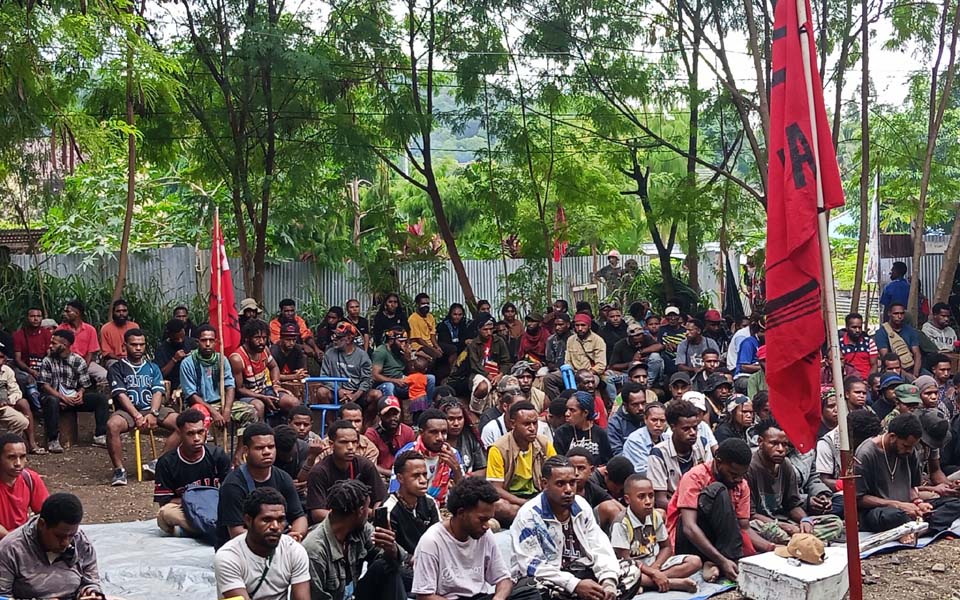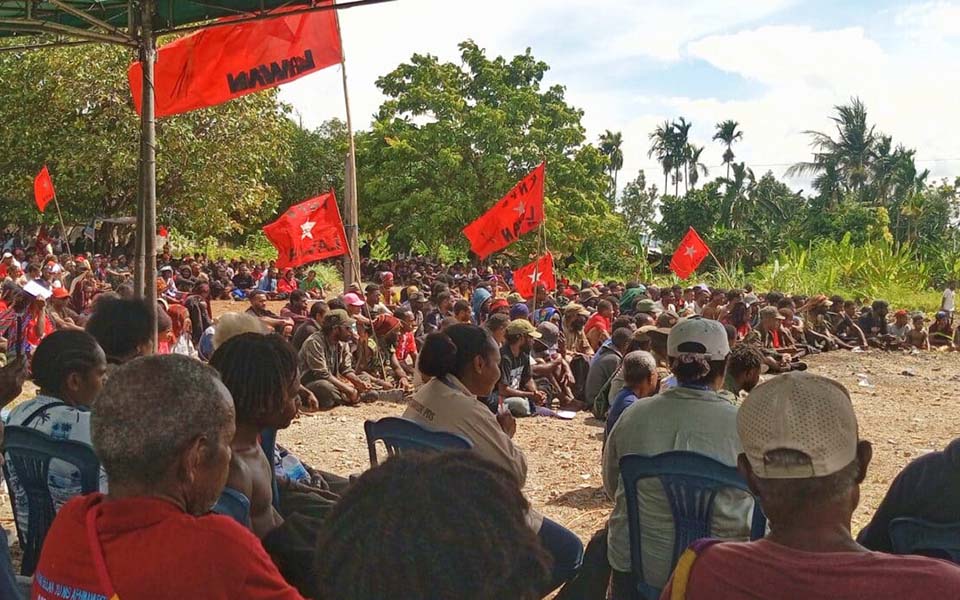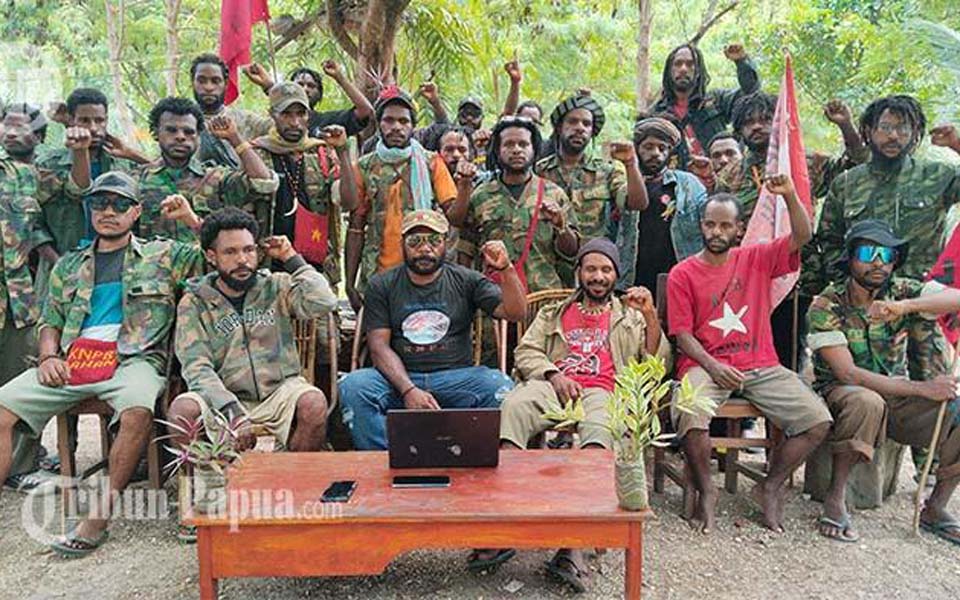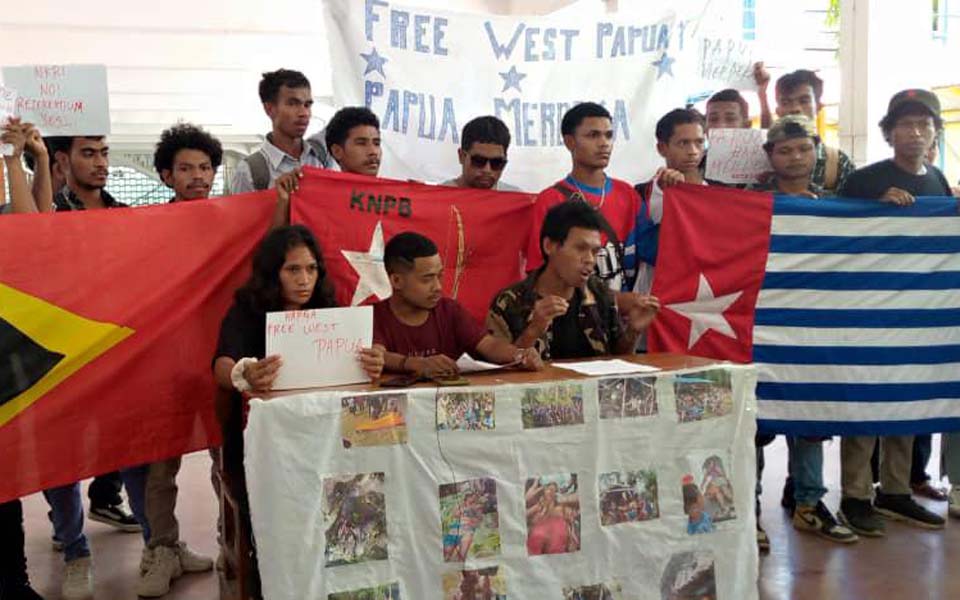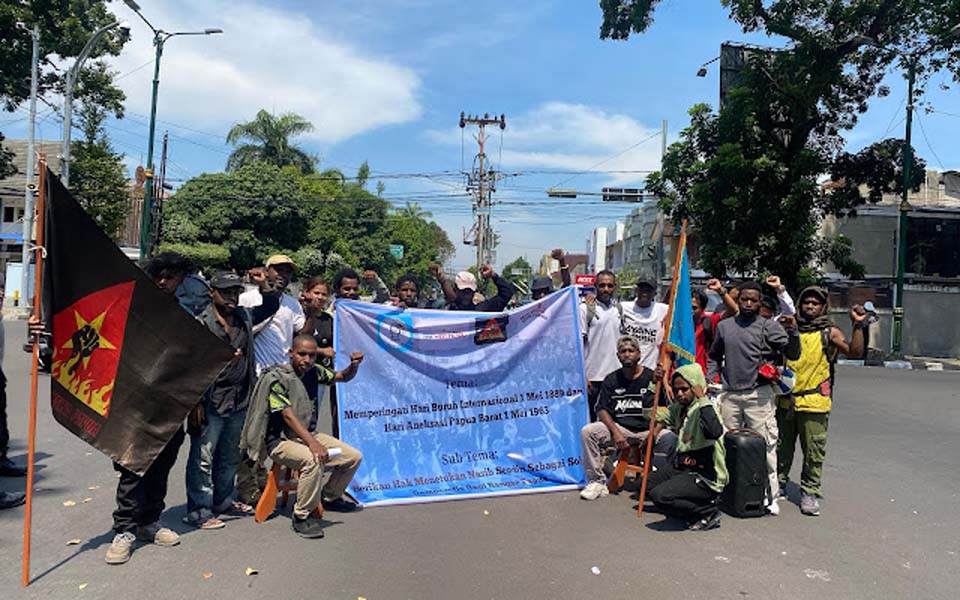Jayapura – The Rome Agreement signed in Rome, the capital of Italy on 30 September, 1962 following the New York Agreement on August 15, 1962, was carried out without the involvement of a single representative of the Papuan people, even though the two agreements were related to the future of the people of West Papua.
Responding to this, the Central Management Board (BPP) of the West Papua National Committee (KNPB) delivered a number of firm statements to the governments of the Republic of Indonesia, the Netherlands, the United States and the United Nations (UN) to be followed up on in order to save the people and the natural resources of Papua which have been continuously looted in the name of development.
On Tuesday September 30, the KNPB raised at least seven aspirations or statements on the 63rd anniversary of the illegal Rome Agreement.
1. The KNPB urges the Indonesian government to immediately provide space for the freedom and right to self-determination as a peaceful and democratic solution for the people of West Papua.
2. The KNPB urges the Indonesian government to immediately withdraw the all organic and non-organic Indonesian Military (TNI) and Indonesian Police (Polri) from the land of West Papua as a precondition for peace.
3. The KNPB urges the Indonesian government to immediately close PT Freeport Indonesia, Tangguh LNG in Bintuni, the MNC Group LNG plant, the Strategic National Project (PSN) in Merauke, the Wabu Block in Intan Jaya and the palm oil plantation in Arso among others, which are masterminds of humanitarian crimes in the land of Papua.
4.The UN must take responsibility and be actively involved in a fair and democratic manner in the process of self-determination, historical alignment and the human rights violations that have occurred against the West Papua people.
5. The KNPB urges the Indonesian government to immediately ratify and comply with international humanitarian laws including the 1949 Geneva Convention and its additional protocols.
6. The KNPB urges the Indonesian government to immediately open access to international journalists to monitor the humanitarian situation, more specifically civilian refugees which have reached 313,000 people.
7. Immediately release the four Federal Republic of West Papua (NRFPB) political prisoners and other political prisoners throughout Indonesia.
"In this statement we from the KNPB call for and the KNPB will continue to voice resistance to all forms of colonialism, oppression and exploitation of the people and the homeland of West Papua until the people of Papua have a genuine victory", said KNPB Central Chairperson Warpo Sampari Wetipo in a press release.
Wetipo said that the contents of the Roman Agreement was very controversial with 29 articles regulated to the New York Agreement, which regulated three kinds of things, where Articles 14-21 regulated self-determination based on international practices, namely one person one vote.
Meanwhile Articles 12 and 13 regulated the administrative transfer of the territory of West Papua from the United Nations Temporary Executive Authority (UNTEA) as the UN's provisional government agency to Indonesia.
Based on the agreement, said Wetipo, Indonesia's claim to the land of West Papua was fulfilled after the hand-over of power over the West Papua region from Dutch hands to Indonesia through UNTEA on May 1, 1963.
Furthermore, Indonesia even carried out a conditioning of the territory through military operations and the crushing of the West Papuan people's pro-independence movement. Ironically, before the process of self-determining was carried out, exactly on April 7, 1967, PT Freeport, the mining company owned by the imperialist United States, signed its first work contract with the Indonesian government.
Wetipo continued, saying that the claim over West Papuan territory was made by Indonesia through the first contract with Freeport two years before the 1969 UN sponsored referendum on West Papua's integration with Indonesia (Pepera).
So, of the 809,337 Papuans who had voting rights, they were represented by just 1,025 people who had previously been quarantined and only 175 people provided opinions. The deliberations to reach consensus to legitimise Indonesia carrying out the Pepera were undemocratic, full of terror, intimidation, manipulation and with gross human rights violations.
"This situation, namely terror, intimidation, detention, shootings and even the murder of the West Papua people, continues to occur to this day in the era of Indonesian reformasi", he said, referring to the political reform process that began following former president Suharto's resignation in 1998.
It was emphasised again that the West Papua people's rights have no value for Indonesia.
"Before and after the illegal Pepera was carried out, a military operations area (DOM) was implemented throughout the land of Papua. That was the aim of Indonesia to colonise West Papua as a colonial territory to this day with a militaristic and savage system", he said.
Notes
The Rome Agreement was signed by Indonesia, the Netherlands and the United States in Rome on September 30, 1962. The agreement provided for several points including a postponement of a referendum on West Papua's status (the Pepera) which had been scheduled to be held in 1969 under the New York Agreement signed on August 15, 1962, that the referendum would use a consultative process, that the UN's report on the implementation of the referendum would be accepted without open debate and on US commitments to invest in resource exploration and provide funds for development programs in West Papua.
[Translated by James Balowski. The original title of the article was "KNPB Serukan 7 Aspirasi di Hari Perjanjian Roma Ilegal".]
Source: https://suarapapua.com/2025/09/30/knpb-serukan-7-aspirasi-di-hari-perjanjian-roma-ilegal/





